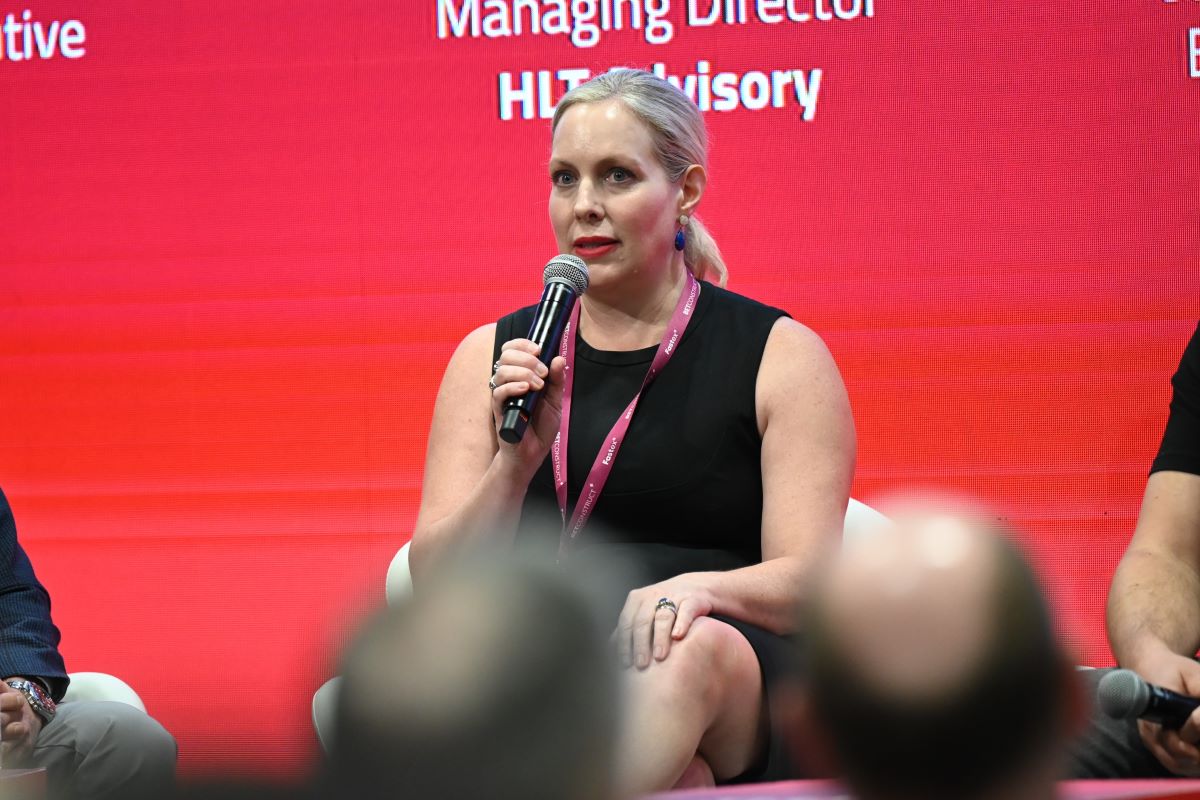
CGA’s Amanda Brewer on why tweaking Ontario model can work for Alberta
Brewer spoke to SBC at the Canadian Gaming Summit
Whenever Alberta ultimately opens its doors to welcome multiple commercial online gaming operators, as it now seems inevitable that it will, there’s ample room for optimism.
Given that Ontario’s model has proven competitive and profitable over its first two years, it’s understandable why Minister Dale Nally has been drawn to advocating for the creation of a similar open-license market. Therein lies great potential.
The Canadian Gaming Association’s Amanda Brewer told SBC Americas Editor Jessica Welman at last week’s Canadian Gaming Summit that in opening up the market in a similar way, Alberta is primed to create a gaming landscape in which operators can thrive.
“If Alberta wants to open its market in a really seamless way, they first and foremost have to find a solution that works for them,” Brewer said. “That’s not cutting and pasting Ontario’s model, but there could be parts of that model that do work for them. You have a whole bunch of operators who’ve been working under that structure and those regulations for a couple of years now, they’re familiar with it. So, if Alberta allows operators to come in under similar terms and conditions, they should have a really happy bunch of compliant operators, which is what you want.”
As for what Alberta could look to directly borrow from Ontario’s market, Brewer pointed to the Alcohol and Gaming Commission of Ontario (AGCO) having established standards that are “risk-based, not prescriptive.” Operators in Ontario are given a mandatory framework of regulations to work within but are free to manoeuvre within that framework as they see fit, offering them significant freedom and flexibility.
One topic that has come up repeatedly in discussions about a potential Alberta market is tax rate. Nally has not been shy in positing that Alberta’s low corporate taxes should appeal greatly to any commercial operators looking to the province as a potential new frontier. Exactly what gaming tax rate could be established in Wild Rose Country remains to be seen, but the consensus seems to be that it will be moderate.
“A good way to drive operators out is to set the tax rate really high,” Brewer noted. “Something around Ontario’s 20% would make operators very happy. Alberta is looking to make sure there’s a high level that operators need to meet because you don’t want to lower the bar to get operators in the market, but you want to make sure conditions are reasonable.”
As Brewer alluded to, merely cutting and pasting Ontario’s conditions into Alberta is unlikely to work. As for what could be different between the two provinces, she mentioned that the interpretation of “conducting and managing” gaming could vary. Alberta passed legislation recently that allows for a new entity to be established to regulate gaming, taking it out of the hands of Alberta Gaming, Liquor and Cannabis.
Should we expect to see an iGaming Ontario-style unit set up?
“The beauty of our conduct and manage is it means different things to different people depending on what province your feet are in,” Brewer said. “That is something where I actually see Alberta taking perhaps a very different direction. iGaming Ontario was set up and this is what our Attorney General and our government felt was required to satisfy those conditions of conduct and manage.
“Alberta, I am pretty certain, will do something a little bit different… You want provinces to make it work for them. It has to work for Alberta.”
CGA developing RG standards amid advertising debate
In her chat with SBC, Brewer also touched upon another topic that is front and centre in Canadian gaming right now: advertising.
Ontario betting advertising bleeding into other provinces has been a thorny issue for politicians. Bill S-269, the National Framework on Advertising for Sports Betting Act, has been read twice in the Senate and was the subject of two Standing Committee on Transport and Communications meetings earlier this month. The idea of a full ban on advertising has even been touted, although the bill’s sponsor Sen. Marty Deacon labeled that notion unfeasible.
Brewer said that in light of the issue, CGA President and CEO Paul Burns and other stakeholders are working on a set of responsible gambling principles and a code for operators to follow.
“Knowing that this industry has to be accountable for its actions and it takes responsible gambling very seriously, Paul and the board decided it would be a good idea,” she explained. “We already follow the standards that AGCO has set out, but just to make sure that people understand how seriously we take this, in addition to the regulatory standards there will be more responsible gambling principles that operators will sign on to follow and adopt within their organisations.
“At the end of the day, this is something that has to transgress everything else that we’re doing because the best kind of gaming experience is a safe one. Through the conduct and manage model and the regulatory standards we have in Ontario, we know that the operators who are in this market with licenses are providing the highest responsible gambling standards that exist.”
The recent report from Deloitte illustrated the effects of regulated gambling in the province, indicating not only the revenue generation potential but also the wider economic impact, including more than 15,000 jobs created and sustained and $2 billion in revenue for the government.
“One of the things we’re proudest of in Ontario is that we’ve got operators who’ve come in and set up offices, they’ve hired, they’re investing in Ontario,” concluded Brewer. “We’ve got colleges and universities that are creating specific training programs that they can help produce graduates to work in this industry, and it’s all technology-based. It’s such a good-news story. It ticks a lot of boxes.”